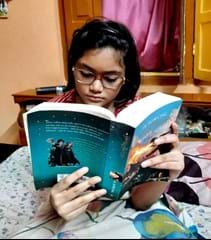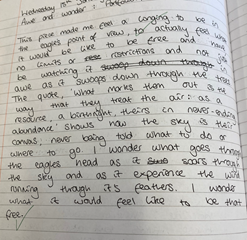- The ‘30 million word vocabulary gap’ research should no longer be used to argue for more work on vocabulary in classrooms. It dates from 1995, has been comprehensively critiqued for its limited size and methodology and its claims have not been replicated since. Indeed, the most recent attempt to repeat its work (by Sperry, Sperry and Miller), with a more legitimate methodology, failed to deliver the same results. There is much new research too on the greater significance of the quality of interaction as opposed to quantity of words in the early years (Dr Jill Gilkerson, Dale Walker and others).
- Even if it did have any credence, what would its value be in relation to older students? Even if one thought it might have any value, the Hart Risely study was focused only on children of 7 months to 3 years old and their learning of language in the home. This should not be uncritically extended to relate to the language of secondary age students, whose language influences by this age extend so far beyond those of the parent/child interaction.
- It is based on a ‘deficit’ view of the language that children bring into school that has been challenged by many linguists and educators, all the way from William Labov and Harold Rosen in the 1970s, and linguistic anthropologist Shirley Brice Heath in the 1980s, to contemporary linguists like Dr Nelson Flores, Susan D. Blum and others. These linguists contest the whole idea that working class students and students of colour from poor communities have limited linguistic resources. Instead, they suggest that the rich language resources of the home are often under-acknowledged and under-valued in school. They argue that it is counterproductive to make one’s starting-point the criticism of students’ own language, which is so closely bound up with their identity and sense of themselves. This causes the kind of lack of confidence and confusion that is damaging to language development. (See Dr Rob Drummond’s recent research on youth language in the UK, which takes a very similar stance.)
- The ‘word gap’ narrative massively over-simplifies what’s involved in language and language development, in reading and comprehension. Words are just one aspect of a panoply of kinds of knowledge and skill that are involved in reading, speaking and writing. Equally important are knowledge and understanding of discourse, genre, syntax, the gaps in texts and the ways in which readers make meaning through inference and understanding of ambiguity. One only has to look at a few actual texts that students read in classrooms – poems, stories, novels, newspaper articles and information texts, such as text books – to see that the difficulty in texts does not always reside only, or even predominantly, in the words of the text. Texts with very simple vocabulary can be extremely difficult because of their ellipses and gaps – Beckett, EE Cummings, Pinter, Cormac McCarthy are just a few examples of writers who use very simple words but whose writing is far from simple. Texts with relatively simple words and complex syntax – such as many non-fiction texts – can pose real problems for students, who struggle to unpick the logic of a sentence or the logic of a longer stretch such as a paragraph, or a whole text. Linguist, Katherine Pereira’s work on this is of particular interest.
I argued that developing students’ vocabulary is important (alongside these other understandings about texts). Words open up meanings in texts. Words offer scope to make meaning of your own. That’s incontrovertible. But there is a mass of evidence to suggest that teaching vocabulary does not necessarily result in learning of vocabulary. Even E.D. Hirsch, oft quoted talking about the importance of vocabulary, says something similar, when he claims, in an interview for Education News in January 2013, that ‘word study cannot make much of a dent because there are too many words to be learned’ and ‘The fastest and best way to learn words is unconsciously and in context while learning about things. The origin of word knowledge is thing knowledge.’
Academic researchers like Kate Nation (in Nurturing a lexical legacy: reading experience is critical for the development of word reading skill, Science of Learning 2017), along with her colleagues Castles and Rastle in Ending the Reading Wars: Reading Acquisition from Novice to Expert, argue that it is reading that makes the biggest difference to vocabulary acquisition. They quote studies of ‘vocabulary instruction’ that show that children outperform those in the control group on comprehension passages containing the instructed words, but ‘transfer to more general comprehension was negligible’. They say that ‘learning a set of words can only have limited utility, given the unconstrained and unlimited nature of vocabulary.’
Not only misguided but positively harmful?
I suppose where I might start to depart from these, by now reasonably common, if not vociferous voices, questioning vocabulary teaching is that I think some of what’s being encouraged at the moment is not just ineffective but is positively harmful to students and their developing ability to use language well.
One aspect of this is demonstrated clearly in student writing. Over 12 years of running student writing competitions for emagazine, either in conjunction with the Poetry Book Society or Forward Arts Foundation or under our own steam in the emagazine Close Reading Competition, we are in a good position to look at student writing over time. And we have been seeing changes in what our most enthusiastic and able students have been doing. The most troubling shift has been the one we have noticed over the past couple of years, where we have observed increasing numbers of students using vast amounts of academese, literary terminology and impressive-sounding vocabulary, to very poor effect.
Academese misuse includes constant sprinkling of academic signposting words throughout their essays – heretofore, hence, thus, moreover, in conclusion and so on – often as mere window-dressing, with little actual meaning attached. ‘Hence’, as a sentence starter only works if what follows is the effect – the causational relationship that is promised being actually delivered. Badly used, it seems merely inept. Even when well used in terms of meaning, the effect of overuse is deadening. It takes out any sense of a vital, vibrant, thinking person with a voice. It is not a route to good writing in our subject.
Literary terminology is being massively over-used, with students struggling to cram in as many high-flown, Latinate terms as possible, regardless of whether they are genuinely useful in developing a valid, well-judged interpretation, or not. A word like ‘hyperbaton’ – wrongly used – is privileged over much more common and helpful terms like ‘narrative voice’ or ‘point of view’ or ‘the arc of the story’ or ‘climax’ or ‘turning-point’ all of which might have much more to offer in terms of genuinely interesting literary analysis. Ask 50 English teachers and English Literature lecturers in HE what ‘hyperbaton’ means and I can promise you that few will readily know the answer. (On a recent course at EMC I tried it, and not a single teacher in the room could explain the term, and that’s no poor judgement on them.) So why are we force-feeding these terms to 15-19 year olds, who then use them, often incorrectly or randomly, rather than saying any of the genuinely interesting and significant things that are staring out at them from the text?
Impressive-sounding vocabulary of a more general kind is making good students sound like they are speaking or writing in a foreign language. In the desire to impress with ‘ambitious’ vocabulary and big words, they are filling their sentences with meaningless nonsense. Their writing ends up being a horrible, incomprehensible mess. ‘It is not obscene to postulate that…’ says one student, rather than ‘One might argue that…’ Another talks of ‘the palpable expendability of human life’ (why ‘palpable’?) and ‘the aforementioned concept of ephemeral existence’. A third says ‘This employs her ability to…’. A fourth says ‘Whilst it could be construed that the poet uses an all-knowing entity to encapsulate the ravishing desire a mother feel (sic) to protect and conserve her young.’
These are not one-offs. The students who enter our competitions using this kind of vocabulary are now in the majority. But they are serious, able, enthusiastic students. They are trying hard. They deserve to do well. So, we must conclude that something is going wrong in terms of their understanding about what good writing is in the subject. With the very best of intentions, in good faith, and with huge pressures to prove that they are doing all that they can for their students, teachers must be leading students to believe that using words in this way will make them better writers and more successful in English. Sadly, this is doing the students a disservice. I would stress that my criticism is not of the teachers. I recognise the pressures; I acknowledge the good intentions. My criticism is of the ideas circulating that have led them in this direction.
What do students need to know about vocabulary in writing? They need to be told that it is ‘ideas’ that are important, not words – chunky, valid, interesting ideas about texts, that they can explain and explore in the clearest way possible. That might involve them in drawing on subject terms and academic vocabulary but that’s not a benefit in and of itself. Words are only valuable insofar as they allow for the clear expression of significant and interesting ideas. As much of the research shows, it’s through reading extensively, through talk and debate, through raising concepts naturally in dialogue and classroom discussion, that the language of the subject will take root and flourish, not through ‘getting in’ as many impressive sounding words as you possibly can. Students who can talk persuasively about point of view in a narrative text, or the sudden break in the patterning in the refrain in a poem, will do very well. They do not need to throw in zeugma, or hyperbaton for the sake of it. The examiners, both of GCSE and A Level, are very much in agreement. If you read the recent reports, they are all full of advice not to go overboard on literary and linguistic terms. They too report that some of the most unsuccessful essays just read like long lists of terms.
Word-level analysis of texts – picking away at the detail. The over-emphasis on words has taken over in another area too, and that’s in what students are choosing to focus on when they talk about texts. They have learned that it’s a good thing to take a word, define it and ‘explode’ it, in order to prove that they have ‘done’ an assessment objective that involves talking about language in a text, with both detailed evidence and exploration. They home in on individual words without any reference to bigger ideas or broader thinking. Without having an overview, without stating the obvious, such as ‘This is a very unusual start to a novel,’ or ‘Here is a moment of high drama where the main character is involved in a fight’, or ‘This is a story about a broken romance,’ the student will leap to a detailed exploration of the word ‘I’, for instance, and how often it appears in a first person narration, or will unpick the etymology of ‘peregrine’ in a poem about a peregrine falcon. Big picture ideas about texts – their interesting play with the genre’s conventions, the immediate thing that strikes you, the features that make it absolutely special and unique, the big ideas or feelings it’s dealing with, the overall tone, whether comedic, tragic, intimate or cynical – are being ignored in favour of a painstaking exploration of a single word or phrase, giving it disproportionate attention.
In our book Doing Close Reading, we asked several academics and teachers to tell us what they thought good close reading is. Many of the answers focused on the relationship between detail and big ideas, and the way that good writing in the subject weaves between the two, with the big idea at the core of the analysis. One of our favourites – and a favourite of teachers on courses – is the explanation by Professor Peter Barry. He says:
Good close reading should be like looking at a large picture in an art gallery. We don’t begin by marching right up to the canvas to scrutinise the detail – that is not looking at the picture at all. Rather, we stand at a distance first and take in the whole, then move in on something, then stand back again and take in how that and other details relate to each other, and to the whole. My mental catchphrase is ‘Talk about the meanings as well as the words.’
Perhaps that should be a catchphrase for all of us, including our students? What if we told them this, and unpicked for them what it means. Words, like brushstrokes or details in a painting, are what creates the painting. But they are not the painting. Focus on them alone, and you will have no idea of what the painting is. And the same is true for texts.
So, a point has come, in my view, where we need to put words into their proper place – important, yes, but only because of the much bigger meanings they can help us make in speech and writing, or help us reflect on in the texts we read. As Peter Barry says, let’s talk about the meanings as well as the words.




